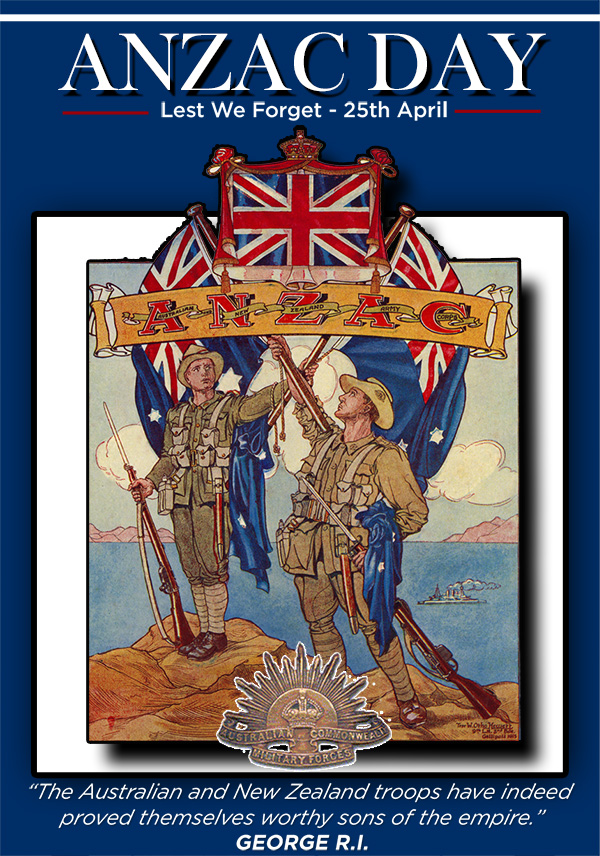Anzac Day marks the anniversary of the first major military action fought by Australian and New Zealand forces during the First World War.
Every year on the 25th April Australians enter a minute silence to remember and reflect on the brave soldiers who lost their lives and were wounded overseas fighting for our country.
To help commemorate this sacred day we have assembled 10 facts you may not know about Anzac Day.
- ANZAC stands for Australian and New Zealand Army Corps. The Anzacs fought in the Gallipoli campaign in 1915 and were quickly known throughout their camps for their brave and honourable spirit.
- The Anzacs were all volunteers, there was no conscription. Men would travel far and wide to sign up as it was seen as a courageous and brave act to fight for your country.
- Two-up is a traditional gambling game only allowed to be played on Anzac day through pubs and clubs in Australia. It was played extensively by the Australian soldiers during WWI.
- There is no town called Gallipoli. It is the name of the area where the Anzacs fought.
- The 25th April was officially named ‘Anzac Day’ in 1916 but the first dawn service was not held until 1923.
- The last surviving Anzac was a man named Alec Campbell who died on 16th May 2002.
- The Gallipoli campaign ended in a stalemate, when the Anzacs slipped away quietly over two nights.
- The Last Post was typically played during the war to tell soldiers the day’s fighting had finished. It is now played at memorial services to indicate the duty of the dead has finished, and they can rest in peace.
- The Anzac biscuits were traditionally square hard tack biscuits that many men were said to have ‘broken their teeth on’. It became one of the soldiers staple foods and could be ground down to make porridge, thicken a stew, fried as fritters and even comically described to be used as souvenirs that could be passed onto generations.
- During the Gallipoli campaign, the Anzac and Turkish soldiers called a truce for eight hours to bury their dead on May 24th 1915.
Did any of your Australian or New Zealand relatives serve and fight during war or conflict? Do you have any missing pieces to your military genealogy research?
Search – Australia WWI Service Records
New Zealand Expeditionary Force Records
New Zealand WWI Service Records

